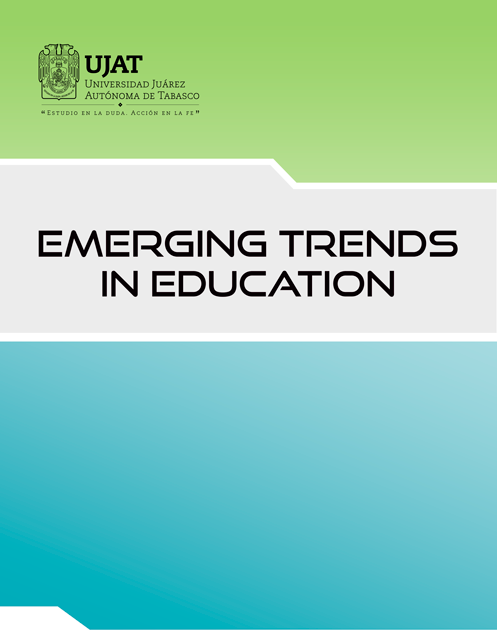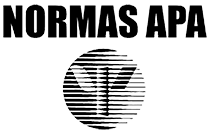Enseñar a comunicar la ciencia: ¿a ciegas o con metodología? Una propuesta para el diseño y evaluación de talleres para dar charlas de divulgación.
DOI:
https://doi.org/10.19136/etie.a6n12.5766Palabras clave:
evaluación, capacitación, comunicación pública de la ciencia, charlas de divulgación científica, metodología, científicosResumen
A excepción de quienes tienen un talento innato, las y los científicos van “a ciegas” cuando se trata de comunicar la ciencia a públicos no especializados. Pese a que existen diversas propuestas de capacitaciones, la mayoría no está basada en evidencia, ni hay una sistematización de los enfoques y metodologías utilizadas. Así, también quienes diseñan e imparten este tipo de cursos y talleres corren el riesgo de ir “a ciegas”, al no saber qué funciona, qué no, y por qué. Para contribuir a resolver este problema, pusimos a prueba una metodología de diseño y evaluación de un taller para enseñar a planear charlas de divulgación científica. El taller de 8 horas se impartió a académicos del Instituto de Fisiología Celular de la UNAM. La evaluación del taller y de sus resultados indican que la metodología adoptada puede contribuir a resolver el problema práctico al que se enfrentan científicos y capacitadores, aunque su verdadero potencial deberá ser puesto a prueba en estudios futuros. La recompensa a este arduo trabajo es prometedora: lograr que ni científicos ni capacitadoras vayan a “ciegas” a la hora de enseñar y planear una charla de divulgación científica.
Referencias
AAAS, A. A. for the A. of S. (2022). AAAS Communication Toolkit. https://www.aaas.org/resources/communication-toolkit
Bankston, A., & McDowell, G. S. (2018). Changing the Culture of Science Communication Training for Junior Scientists. Journal of Microbiology & Biology Education, 19(1). https://doi.org/10.1128/JMBE.V19I1.1413
Barba, M. D. L. P., Castillo, J. P. G. D., & Massarani, L. (2019). Public engagement in science: Mapping out and understanding the practice of science communication in Latin America. Anais da Academia Brasileira de Ciências, 91(1), 20171000. https://doi.org/10.1590/0001-3765201920171000
Barel-Ben David, Y., & Baram-Tsabari, A. (2020). Evaluating science communication training: Going beyond self-repo. En Theory and Best Practices in Science Communication Training (1st edition, pp. 122-138). Routledge. https://www.taylorfrancis.com/chapters/edit/10.4324/9781351069366-9/evaluating-science-communication-training-yael-barel-ben-david-ayelet-baram-tsabari
Besley, J. C., Dudo, A., & Storksdieck, M. (2015). Scientists’ views about communication training. Journal of Research in Science Teaching, 52(2), 199-220. https://doi.org/10.1002/TEA.21186
Bullock, O. M., Amill, D. C., Shulman, H. C., & Dixon, G. N. (2019). Jargon as a barrier to effective science communication: Evidence from metacognition: https://doi.org/10.1177/0963662519865687, 28(7), 845-853. https://doi.org/10.1177/0963662519865687
Jensen, E. A., & Gerber, A. (2020). Evidence-Based Science Communication. Frontiers in Communication, 0, 78. https://doi.org/10.3389/FCOMM.2019.00078
Luna, D. S., & Bering, J. M. (2020). The construction of awe in science communication: https://doi.org/10.1177/0963662520963256, 30(1), 2-15. https://doi.org/10.1177/0963662520963256
Massarani, L. (2018). Estado del arte de la divulgación de la ciencia en América Latina. Journal of Science Communication, América Latina, 1(1), A01. https://doi.org/10.22323/3.01010201
McPhetres, J. (2019). Oh, the things you don’t know: Awe promotes awareness of knowledge gaps and science interest. https://doi.org/10.1080/02699931.2019.1585331, 33(8), 1599-1615. https://doi.org/10.1080/02699931.2019.1585331
Mercer-Mapstone, L., & Kuchel, L. (2015). Core Skills for Effective Science Communication: A Teaching Resource for Undergraduate Science Education. http://dx.doi.org/10.1080/21548455.2015.1113573, 7(2), 181-201. https://doi.org/10.1080/21548455.2015.1113573
Mercer-Mapstone, L., & Kuchel, L. J. (2016). Integrating communication skills into undergraduate science degrees: A practical and evidence-based approach. Teaching and Learning Inquiry, 4(2), 122-149. https://doi.org/10.20343/TEACHLEARNINQU.4.2.11
Miller, S., Fahy, D., & Team, T. Esc. (2009). Can Science Communication Workshops Train Scientists for Reflexive Public Engagement?: The ESConet Experience. http://dx.doi.org/10.1177/1075547009339048, 31(1), 116-126. https://doi.org/10.1177/1075547009339048
O’Connell, C., McKinnon, M., & LaBouff, J. (2020). One size does not fit all: Gender implications for the design of outcomes, evaluation and assessment of science communication programs. Journal of Science Communication, 19(1), A06. https://doi.org/10.22323/2.19010206
Oliveira, L. M. A. de, Cordeiro-Spinetti, E., Neves, F. P. G., Sujii, P. S., Ribeiro, R. L., Lyra, S. S. de, Pinto, T. C. A., & Bonatelli, M. L. (2021). Going Online in Pandemic Time: A DivulgaMicro Workshop Experience†. Journal of Microbiology & Biology Education, 22(1). https://doi.org/10.1128/JMBE.V22I1.2493
Oliveira, L. M. A., Bonatelli, M. L., & Pinto, T. C. A. (2019). DivulgaMicro: A Brazilian Initiative To Empower Early-Career Scientists with Science Communication Skills. Journal of Microbiology & Biology Education, 20(1), 40. https://doi.org/10.1128/JMBE.V20I1.1616
Orozco, C. E. (2018). Diez años de investigación de la comunicación pública de la ciencia en y desde América Latina. Un estudio en tres revistas académicas (2008–2017). Journal of Science Communication, América Latina, 1(1), A02. https://doi.org/10.22323/3.01010202
Pham, D. (2016). Public engagement is key for the future of science research. Npj Science of Learning, 1(1), Article 1. https://doi.org/10.1038/npjscilearn.2016.10
Ponzio, N. M., Alder, J., Nucci, M., Dannenfelser, D., Hilton, H., Linardopoulos, N., & Lutz, C. (2018). Learning Science Communication Skills Using Improvisation, Video Recordings, and Practice, Practice, Practice. Journal of Microbiology & Biology Education, 19(1). https://doi.org/10.1128/JMBE.V19I1.1433
Rakedzon, T., Segev, E., Chapnik, N., Yosef, R., & Baram-Tsabari, A. (2017). Automatic jargon identifier for scientists engaging with the public and science communication educators. PLOS ONE, 12(8), e0181742. https://doi.org/10.1371/JOURNAL.PONE.0181742
Rodgers, S., Wang, Z., Maras, M. A., Burgoyne, S., Balakrishnan, B., Stemmle, J., & Schultz, J. C. (2018). Decoding Science: Development and Evaluation of a Science Communication Training Program Using a Triangulated Framework: https://doi.org/10.1177/1075547017747285, 40(1), 3-32. https://doi.org/10.1177/1075547017747285
Rodgers, S., Wang, Z., & Schultz, J. C. (2020). A Scale to Measure Science Communication Training Effectiveness: https://doi.org/10.1177/1075547020903057, 42(1), 90-111. https://doi.org/10.1177/1075547020903057
Rosen, C., & Cortassa, C. (Documento de trabajo, sin publicar). Sistematización antecedentes para encuesta a científicos.
Rubega, M. A., Burgio, K. R., MacDonald, A. A. M., Oeldorf-Hirsch, A., Capers, R. S., & Wyss, R. (2020). Assessment by Audiences Shows Little Effect of Science Communication Training: https://doi.org/10.1177/1075547020971639, 43(2), 139-169. https://doi.org/10.1177/1075547020971639
Sánchez-Mora, M. del C., & Macías-Nestor, A. P. (2018). El papel de la comunicación pública de la ciencia sobre la cultura científica: Acercamientos a su evaluación. Revista Eureka sobre Enseñanza y Divulgación de las Ciencias, 1(1), 1103. https://doi.org/10.25267/Rev_Eureka_ensen_divulg_cienc.2019.v16.i1.1103
Silva, J., & Bultitude, K. (2009). Best practice in communications training for public engagement with science, technology, engineering and mathematics. Journal of Science Communication, 8(2), A03. https://doi.org/10.22323/2.08020203
Spektor-Levy, O., Eylon, B.-S., & Scherz, Z. (2009). Teaching Scientific Communication Skills in Science Studies: Does it Make a Difference? International Journal of Science and Mathematics Education 2009 7:5, 7(5), 875-903. https://doi.org/10.1007/S10763-009-9150-6
Varner, J. (2014). Scientific Outreach: Toward Effective Public Engagement with Biological Science. BioScience, 64(4), 333-340. https://doi.org/10.1093/biosci/biu021
Ziegler, R., Hedder, I. R., & Fischer, L. (2021). Evaluation of Science Communication: Current Practices, Challenges, and Future Implications. Frontiers in Communication, 0, 73. https://doi.org/10.3389/FCOMM.2021.669744
Publicado
Número
Sección
Licencia
Derechos de autor 2024 Emerging Trends in Education

Esta obra está bajo una licencia internacional Creative Commons Atribución-NoComercial-SinDerivadas 4.0.




























